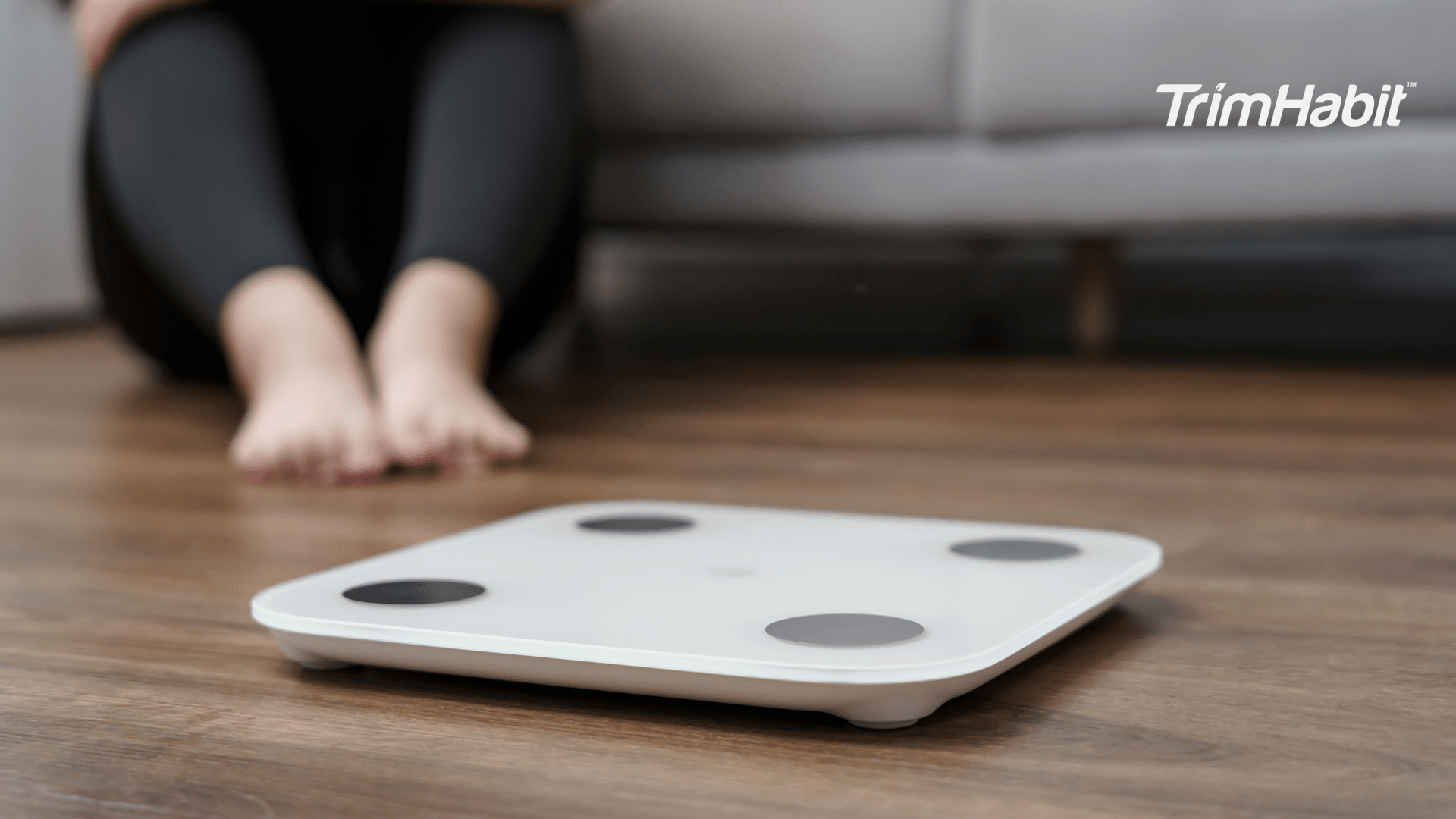Semaglutide, a weight loss medication, has reshaped modern weight management. Many people who’ve struggled for years finally experience real progress and hit a weight loss milestone with this once-weekly medication, contributing to their overall weight loss efforts. Yet, after several months, a familiar frustration can emerge: the scale stops moving.
A weight-loss plateau while on semaglutide is common and does not mean the medication has stopped working. Instead, it reflects how your body responds and adapts to change.
Let’s explore why the scale might stall while on semaglutide, what it really means, and how you can break through it safely and effectively.
How Semaglutide Promotes Weight Loss
Before understanding why a plateau occurs, it’s essential to know how semaglutide works in the context of a healthy lifestyle.
Semaglutide is part of a class of drugs called GLP-1 receptor agonists (glucagon-like peptide-1). These medications mimic a natural hormone released in your gut after eating. GLP-1 helps regulate both blood sugar and appetite through several key actions:
- Appetite suppression: It acts on the brain’s hypothalamus to reduce hunger.
- Delayed gastric emptying: Food stays in your stomach longer, increasing feelings of fullness.
- Improved insulin sensitivity: It enhances glucose control and stabilizes blood sugar levels.
- Reduced cravings: It may decrease the brain’s reward response to high-fat, high-sugar foods.
Together, these effects make it easier to eat less without constant hunger. When caloric intake drops below what your body burns, maintaining a caloric deficit leads to weight loss.
Even the most effective medication cannot override the body’s long-term survival instincts, so it is important to understand how the body burns calories. Over time, changes in metabolism, hormones, and eating habits can make weight loss slower or more difficult.
Why The Scale Might Stall While On Semaglutide
A weight-loss stall while on Semaglutide is common and does not necessarily mean the medication isn’t working. It can, however, raise concerns about potential weight regain. Here are the main reasons this can happen:
Body Adaptation and Metabolic Adjustment
When you lose weight, your basal metabolic rate (BMR), or the number of calories your body burns at rest, naturally decreases. This may cause your body to require fewer calories to maintain its new weight, a process called adaptive thermogenesis. Even if you continue eating the same reduced calories, your body is burning less, which can lead to a temporary plateau.
Water Retention and Glycogen Fluctuations
As your diet changes, fluctuations in sodium, carb intake, and hydration can cause your body to retain water. This can mask fat loss for days or even weeks. Semaglutide can also slow digestion, sometimes leading to temporary bloating.
Caloric Intake Creeping Up
Because semaglutide reduces appetite, people often eat significantly less at first, and this can be compounded by a decrease in physical activity. Over time, your body can adapt, and hunger may gradually return, which can lead to emotional eating and higher calorie intake without realizing it.
Loss of Lean Muscle Mass
Rapid or prolonged calorie restriction, especially without adequate protein or strength training, can lead to muscle loss, which in turn further reduces metabolism. Studies show that up to 25–40% of weight loss can come from lean mass during aggressive dieting or medication-induced appetite suppression1.
Hormonal and Sleep Factors
Stress hormones like cortisol, a lack of sleep, and hormonal fluctuations (especially in women) can promote water retention and fat preservation, potentially affecting your blood pressure.
Dose or Duration Factors
Sometimes the Semaglutide dose isn’t yet at the therapeutic level for your body, which can cause you to stop losing weight, or you’ve been on it long enough that your body’s response has leveled off.
Psychological Expectation
Weight loss is rarely linear, and natural plateaus can occur even during effective treatment. A stall in your weight loss journey does not mean failure. It is part of the body’s normal rhythm of fat loss.
Semaglutide supports behavioral change, but it doesn’t replace it. Over time, small lifestyle drifts can quietly cancel out progress.
Calorie “Creep”
When hunger suppression eases slightly, you might unconsciously eat more than before:
- Finishing leftover bites,
- Grabbing quick snacks,
- Pouring larger portions,
- Or having frequent “cheat” meals.
Even an extra 200–300 calories daily can erase your deficit. Because your calorie needs shrink as you lose weight, those small increases matter more than ever.
Reduced Non-Exercise Activity (NEAT)
Non-exercise activity thermogenesis (NEAT) includes all the energy you burn outside of formal workouts, such as walking, standing, fidgeting, and doing household chores.
After significant weight loss, many people move less without realizing it. You might:
- Take fewer steps,
- Sit more throughout the day,
- Burn fewer calories during identical workouts.
This hidden decrease in calorie expenditure can cause progress to plateau, even when you are following the same routine.
Exercise Routine Adaptation
If your workout routine hasn’t changed in months, your body has adapted, making the same exercises less effective at burning calories. Over time, muscles become more efficient, cardiovascular improvements reduce the energy needed for the same effort, and your overall calorie expenditure decreases.
Sleep and Stress
Sleep and stress profoundly affect metabolism.
- Poor sleep raises cortisol and ghrelin, increasing cravings for high-calorie foods.
- Chronic stress keeps cortisol elevated, which promotes fat storage (especially around the abdomen) and water retention.
Even with semaglutide, unmanaged stress or poor sleep can undo much of your calorie deficit, especially when combined with the consumption of processed foods.
Still in Dose Escalation Phase
Semaglutide is typically initiated at a low dose and gradually titrated up to minimize side effects. During the early months, appetite suppression may be incomplete.
If you plateau before reaching the full therapeutic dose, such as 2.4 mg weekly for Wegovy, your calorie reduction may not be sufficient yet, especially if you are on a lower dose of the medication.
Inconsistent Dosing or Missed Injections
Missing or delaying doses disrupts semaglutide’s steady-state levels. Appetite may return, leading to increased food intake, or you may experience fluctuations in blood sugar levels that can impact your weight.
Consistency is essential. Taking your injection on the same day each week helps maintain stable levels and control appetite.
Medication Tolerance or Diminished Response
While true tolerance is uncommon, some people notice reduced appetite control after several months. This doesn’t necessarily mean the drug stopped working. Instead, your body may have adjusted to the lower appetite baseline.
Re-evaluating diet quality, stress, sleep, and activity usually restores effectiveness. A dose adjustment or medication switch is rarely necessary and should always be done under medical supervision.
Underlying Medical or Drug Interactions
Certain conditions and medications can blunt weight-loss effects:
- Hypothyroidism or other hormonal imbalances,
- Insulin resistance,
- Cushing’s syndrome,
- Corticosteroids, antidepressants, or antipsychotics.
If progress halts despite adherence, your healthcare provider may order lab tests or review your medications to rule out any interfering factors.
Recognizing A True Plateau vs. Normal Fluctuation
It’s important to distinguish a true weight-loss plateau from normal, temporary fluctuations. A true plateau occurs when your weight remains unchanged for at least 4–6 weeks, despite consistent use of semaglutide, a balanced diet, and regular exercise.
In contrast, normal fluctuations can happen daily or weekly due to factors such as water retention, sodium intake, hormonal cycles, or bowel movements. Even if the scale isn’t moving, you may still be losing fat. To get a complete picture of your progress, track multiple indicators including waist and hip measurements, body composition scans, how your clothes fit, and changes in energy, mood, and fitness levels.
Breaking The Plateau
If you’ve truly hit a stall for several weeks, here’s how to move forward safely:
Re-Evaluate Calorie Needs
Because your body is lighter now, your maintenance calories have dropped. Recalculate your needs:
- Use an online Total Daily Energy Expenditure (TDEE) calculator.
- Subtract about 15–20% for a moderate deficit.
- Track for 1–2 weeks and adjust only if necessary.
Avoid extreme restriction; semaglutide works best with steady, modest deficits, not crash diets.
Increase Protein Intake
Higher protein intake can be an important part of a healthy diet. It helps preserve lean muscle mass, keeps you feeling fuller for longer, and can slightly boost metabolism through the thermic effect of food.
Aim for 1.6–2.2 grams of protein per kilogram of body weight daily (roughly 25–30% of calories).
Excellent sources include poultry, fish, lean beef, eggs, dairy products, legumes, and tofu, all of which contribute to developing healthy habits.
Add or Adjust Strength Training
Resistance training is one of the most powerful tools for overcoming metabolic slowdown.
Try:
- 3–4 full-body sessions weekly (free weights, machines, or bodyweight).
- Focus on compound movements: squats, lunges, pushups, rows, and planks.
- Gradually increase load or intensity.
Even modest muscle gain improves insulin sensitivity, raises resting metabolism, and enhances the appearance of weight loss (firmer, leaner physique).
Move More Throughout the Day
Small bursts of daily activity can make a huge difference:
- Take short walks after meals (improves glucose control).
- Use stairs instead of elevators.
- Stand up every hour if you have a desk job.
Aim for 7,000–10,000 steps per day, adjusted for your fitness level.
Review Medication and Health Factors
Discuss with your healthcare provider:
- Are you on the correct maintenance dose?
- Are there other medications that might interfere with progress?
- Do you need lab work (thyroid, cortisol, insulin, vitamin D, etc.)?
- Would adjusting timing or dosage of semaglutide be helpful?
Never change doses on your own. Semaglutide remains effective in the long term when used consistently and under the guidance of a healthcare professional.
Manage Sleep and Stress
Quality rest and stress management are non-negotiable:
- Target 7–9 hours of sleep nightly.
- Establish a calming bedtime routine (no screens 30 minutes before bed).
- Practice stress-reducing techniques such as deep breathing, journaling, meditation, or light stretching.
Stable cortisol levels promote fat metabolism and hormonal balance, supporting renewed progress.
Be Patient and Data-Driven
Weight loss is not a linear process and reflects the complexity of the journey. The body often loses weight in waves, with periods of stalling followed by further drops.
Track your habits objectively:
- Sleep hours, step count, calorie intake, and workouts.
- Review data every few weeks rather than daily.
Seeing progress patterns over time prevents discouragement from short-term stalls.
When To Seek Medical Guidance
You should contact your healthcare provider if:
- You’ve had no weight change for 8 weeks or more at a stable dose,
- You’ve regained more than 5 lbs without diet changes,
- You experience new side effects (GI issues, fatigue, or swelling),
- Or you suspect other health conditions (thyroid, hormones, medications).
Your clinician can assess whether a dose adjustment, complementary therapy, or additional testing is needed.
Summary
When the scale stops moving on semaglutide, it can feel discouraging, but it is not a sign of failure. This is a crucial moment in effective weight management, showing your body is adapting to its new normal, which is essential for steady weight loss.
The same biology that once resisted change can, with consistent habits, help stabilize your healthier weight over the long term. Rather than chasing rapid numbers, view this plateau as an opportunity to fine-tune your approach.
Focus on eating enough protein, preserving muscle, moving daily, getting adequate rest, and staying consistent with your dose for sustainable results. Weight loss usually occurs in waves, but with patience and persistence, the scale will start moving again, and even if it does not immediately, your health, energy, and metabolic balance are still improving beneath the surface.









